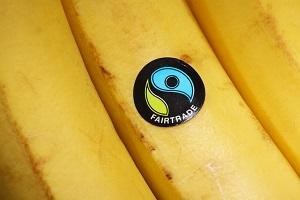Fairtrade International has signed UNECE’s Declaration for Gender Responsive Standards and Standards Development, on the anniversary of its opening. The Declaration, which has 64 signatories, aims to provide a practical framework for standard bodies seeking to make the standards they develop, and follow, be gender responsive.
“At Fairtrade International, we fully recognize the role standards can play in promoting gender equality across global supply chains. With this signatory, and building on our Gender Action Plan established in 2016, we pledge to keep enhancing our efforts to ensure that the standards we develop are not gender blind, and contribute to gender equality and the empowerment of women and girls, ” says Gelkha Buitrago, Director of Standards & Pricing.
“I am delighted to welcome Fairtrade International amongst the signatories to our Declaration for Gender Responsive Standards and Standards Development”, declared UNECE Executive Secretary Olga Algayerova. “Agriculture employs over 1 billion people in the world. Empowering female farmers is therefore key to achieve not only SDG 5, but the entire 2030 Agenda for Sustainable Development”.
Although women’s role in agriculture has increased over time, they still have less access to resources such as land, inputs, information, credit and technical assistance – resulting in the perpetuation of the ‘gender gap’ in agriculture. Development of clearly designed and monitored gender responsive standards are a powerful tool to help close the gap.
The Fairtrade Standards already include strong requirements to prevent gender inequality, increase female participation and empower more women and girls to access the benefits of Fairtrade. As part of its 2016-2020 gender strategy, Fairtrade also developed tailored programs and interventions to increase women’s participation in producer organizations. One example is the Women’s Schools of Leadership, enabling women to learn business, negotiation and finance skills and to take on leadership and committee roles within their cooperatives and communities.
Even with this progress, Fairtrade acknowledges that much work remains to be done to drive equal opportunity, access, and benefits for women. With current planning taking place to define its global 2021-2025 strategy, Fairtrade is committed to integrating gender-transformative measures across its standards, programmatic and advocacy work.
“We are glad to see many organisations committing to the empowerment of women and call upon others to join, recognizing that gender responsive standards are important, but are only a part of the solution. Everyone must play their part if we are to achieve the ambitious targets of SDG 5, Gender Equality, by 2030.” says Gelkha Buitrago.
Note to editors
About Fairtrade
Fairtrade changes the way trade works through better prices, decent working conditions and a fairer deal for farmers and workers in developing countries.
Fairtrade International is an independent non-profit organization representing 1.7 million small-scale farmers and workers worldwide. It owns the FAIRTRADE Mark, a registered trademark of Fairtrade that appears on more than 30,000 products. Beyond certification, Fairtrade International and its member organizations empower producers, partner with businesses, engage consumers and advocate for a fair and sustainable future. Find out more at www.fairtrade.net.
About the Declaration
The Declaration has been developed at UNECE as part of the Gender-Responsive Standards Initiative, a diverse working group composed of representatives from standardization bodies, gender specialists, representatives of regulatory bodies, policymakers, NGOs, UN organizations and members of the academic community.
